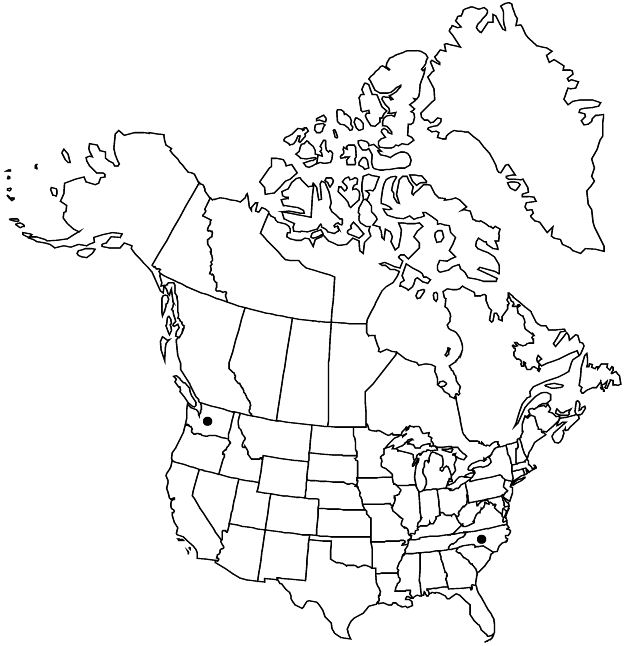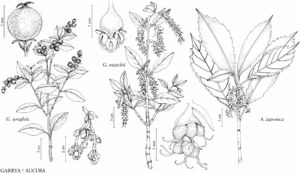Difference between revisions of "Aucuba japonica"
Nov. Gen. Pl., 62. 1783.
FNA>Volume Importer |
FNA>Volume Importer |
Revision as of 18:19, 24 September 2019
Shrubs 1–3 m. Leaves: blade usually narrowly elliptic to ovate-elliptic, seldom widely lanceolate, 8–20 × 5–12 cm, base subrounded or broadly cuneate, margins dentate on distal 1/2 or entire, apex acuminate, abaxial surface light green, adaxial surface green, sometimes yellow-variegated, glossy. Inflorescences: staminate 7–10 cm, pistillate (1–)2–3 cm. Flowers: petals valvate, purplish red to dark red, ovate to ovate-lanceolate or elliptic-lanceolate, 3.5–4.5 × 2–2.5 mm, apex acuminate; nectary slightly 4-lobed, fleshy. Drupes ovoid, 2 cm. 2n = 16, 32.
Phenology: Flowering Mar–Apr.
Habitat: Thickets, brushy hillsides, near botanical gardens, suburban woodlands.
Elevation: 0–200 m.
Distribution

N.C., Wash., e Asia (se China, Japan, Korea, Taiwan), introduced also in Europe, Pacific Islands (New Zealand), Australia.
Discussion
Aucuba japonica has been cultivated in the United States for nearly a century, but naturalized plants appear to be recent escapes from cultivation in Orange County, North Carolina (A. S. Weakley 2012), and King County, Washington (P. F. Zika and A. L. Jacobson 2005).
Frequently planted cultivars of Aucuba japonica with dark green and yellow variegated leaves are var. variegata Dombrain.
Selected References
None.
